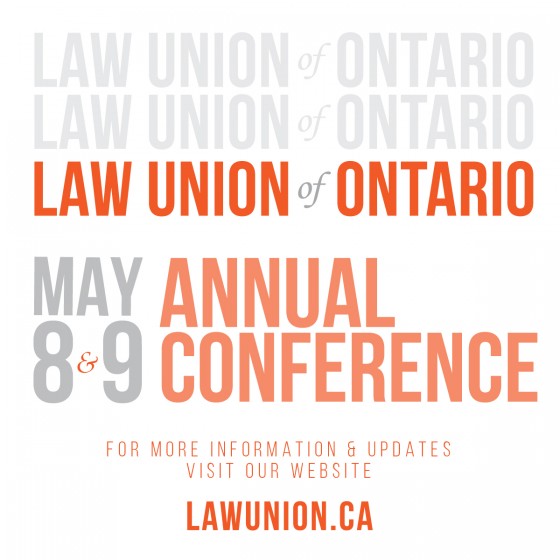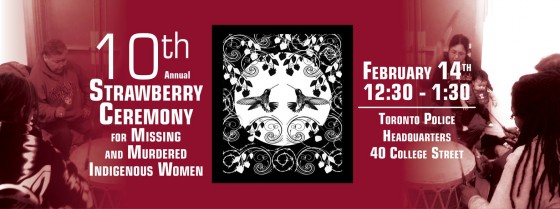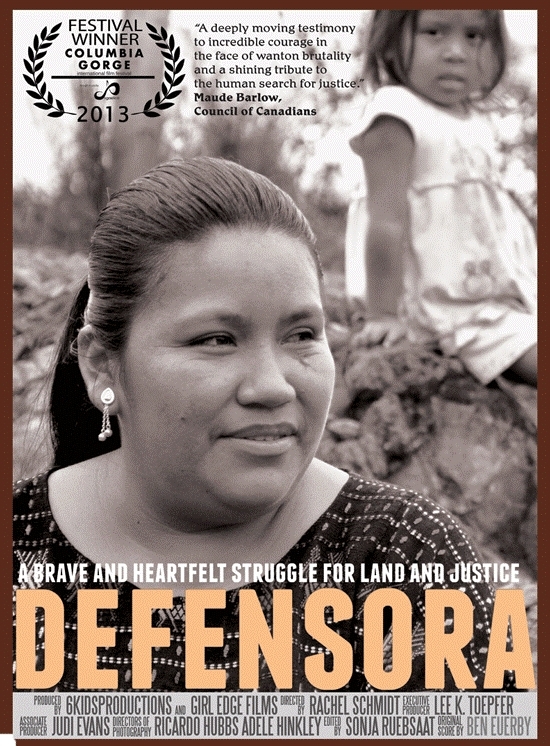DEFENSORA
“Defensora is a deeply moving testimony to incredible courage in the face
of wanton brutality and a shining tribute to the human search for justice.”
(Maude Barlow, Council of Canadians)
Followed by a discussion with:
Murray Klippenstein, lawyer for the Mayan Plaintiffs
Craig Scott, Member of Parliament for Toronto Danforth
Saturday, Jan. 31st – 7:30pm
Walter Stewart Public Library
170 Memorial Park Avenue (1 block north of Mortimer Ave., 2 blocks west of Coxwell Ave)
Closest major intersection Coxwell Ave. and Mortimer Ave.
Public Transit – TTC O’Connor bus northbound from Coxwell subway station.
Hosted by Craig Scott, Member of Parliament for Toronto-Danforth
Sponsored by:
CINEMA POLITICA DANFORTH
RIGHTS ACTION www.facebook.com/rightsaction
MINING INJUSTICE SOLIDARITY NETWORK To be confirmed
MINING WATCH CANADA To be confirmed
CANADIAN COUNCIL FOR INTERNATIONAL JUSTICE To be confirmed
OXFAM CANADA To be confirmed
PROTEST BARRICK To be confirmed
BROADBENT INSTITUTE To be confirmed
COUNCIL OF CANADIANS – TORONTO To be confirmed
LAW UNION OF ONTARIO
CUPE ONTARIO To be confirmed
Screening is FREE but donations will be gratefully accepted.
______________________________________________________
About the Film
DEFENSORA –
Canada / USA / Guatemala — Spanish / Mayan w/ English subtitles 2013 41
Director Rachel Schmidt
Defensora is a documentary about a Mayan Q’eqchi’ resistance against mining in Guatemala. The story is set along the shores of Lake Izabal in the community of El Estor where a nickel mining company has operated for over 50 years. Tensions run high against a backdrop of pro and anti-mining camps, violence and forced evictions. The film takes audiences into the lives of defenders in the resistance who struggle to reclaim their ancestral lands and seek justice in Canadian courts for alleged human rights violations.
Watch Defensora’s preview trailer: https://vimeo.com/41162423
www.defensorathefilm.com
Defensora on facebook: www.facebook.com/Defensora
DEFENSORA documents the historic and on-going land and community defense struggles of Mayan Q’eqchi communities in eastern Guatemala, and their struggle for justice and remedy in Canadian courts against the nickel mining company Hudbay Minerals.
Defensora follows the story of sisters Maria and Angelica Choc, who lead a
Mayan Q’eqchi resistance in Guatemala to reclaim ancestral lands and seek justice
in Canada for the murder of Angelica’s husband, the shooting-paralyzing of
German Choc Chub and the gang rapes of 11 Mayan women.
Set along the shores of Lake Izabal, where tensions run high against a backdrop
and history of violence, intimidation and forced evictions, the stakes are high for the
Mayan Q’eqchi people who risk their lives to protect their lands, speak the truth and
seek justice in Canadian courts, and for Hudbay Minerals that continues to deny their allegations.
“Defensora is a timely documentary that provides candid insights into the
brave struggles of Angélica, German and other Maya Q’eqchi’ women and men
in El Estor, Guatemala who, faced with the grave harm that Canadian
mining operations have brought about, are on the frontline of the battle
for justice in Canadian courts.” (Jen Moore, MiningWatch Canada)
__________________________________________
For more information:
Visit http://www.cinemapolitica.org/danforth
or http://www.torontodanforthndp.com
Check out ‘Cinema Politica (Toronto-Danforth)’ on Facebook.
Call David Langille – langille@yorku.ca or 647 280 7747


